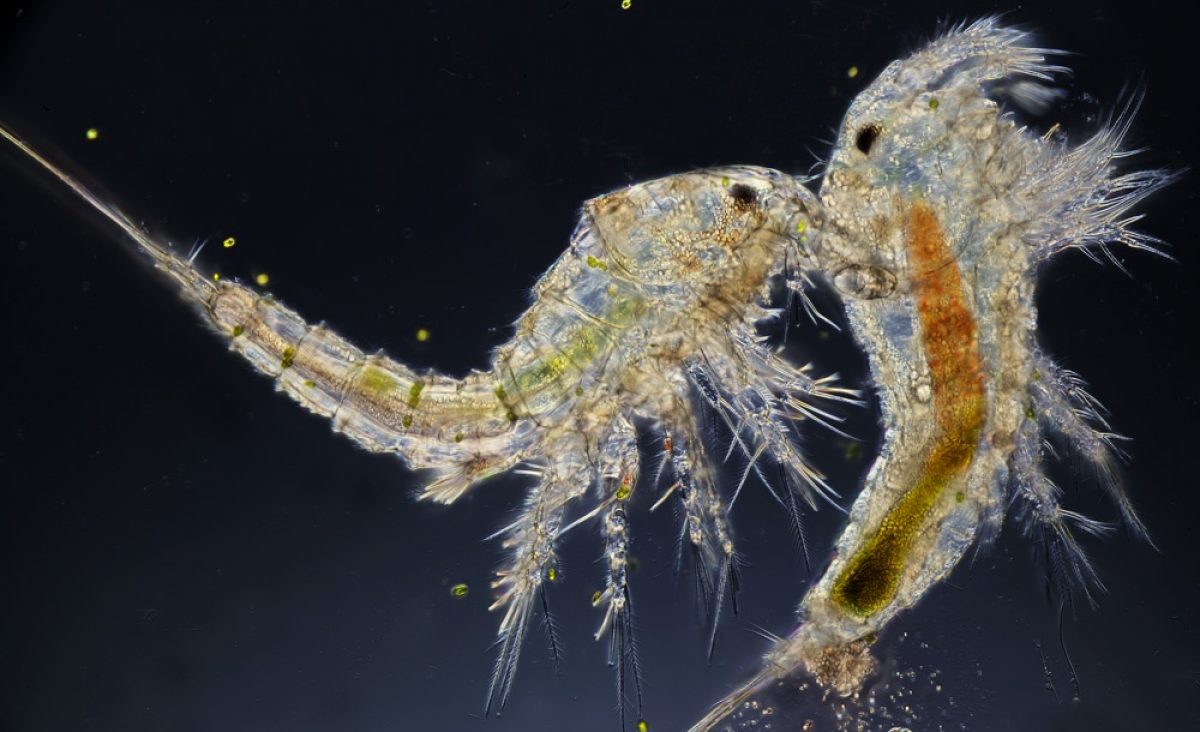What Fish Eat Copepods
If you're a fish owner, you have probably heard about copepods and the benefits they provide to aquatic life. But have you ever wondered what fish eat copepods? In this article, we'll dive into the topic of what fish feed on these tiny crustaceans and the importance they hold in the marine ecosystem.
Pain Points Related to What Fish Eat Copepods
As an aquarium owner, it can be a challenge to provide your fish with a healthy and well-rounded diet. While most fish foods offer a balanced meal, they often lack essential nutrients that can only be found in live organisms. This is where copepods come into play, providing a natural source of protein and omega-3 fatty acids that benefit fish's growth and overall well-being. However, it can be challenging to source live copepods and ensure they stay alive once introduced to your aquarium. Plus, not all fish species enjoy eating copepods, so it's important to understand which ones do.
Answering the Target of What Fish Eat Copepods
Many species of fish feed on copepods, making them an essential component of the marine food chain. Some popular species that enjoy munching on copepods include mandarinfish, wrasses, gobies, jawfish, and dragonets. These fish are known to have a small mouth and prefer small, live prey like copepods, which they can feed on throughout the day.
Summary of Main Points Related to What Fish Eat Copepods
In summary, copepods are tiny crustaceans that offer essential nutrients for marine life, including fish. While they can be challenging to source and introduce to your aquarium, many fish species, including mandarinfish, wrasses, gobies, jawfish, and dragonets, enjoy feeding on copepods and benefit from their nutritional value.
Why Are Copepods Important for Fish?
Copepods play a crucial role in the marine ecosystem as a primary food source for many species of fish and other aquatic organisms like whales and sharks. They are also an important part of the food chain for benthic creatures that live at the ocean floor, thus serving as a significant nutrient source for the ecosystem as a whole.
Furthermore, copepods are rich in essential nutrients like amino acids, omega-3 fatty acids, and carotenoids, which are crucial for fish growth and overall well-being. They contribute to the fish's immune system, vision, and coloration, making them imperative for maintaining a healthy and thriving fish population in your aquarium.
How to Introduce Copepods into Your Aquarium?
The best way to introduce copepods into your aquarium is by cultivating them yourself. You can purchase a culture kit and start growing your own population at home, ensuring a continuous supply of live copepods to feed your fish. Alternatively, you can also source live copepods from a reputable seller that offers them in a healthy and sustainable manner.
Tips for Feeding Your Fish with Copepods
When feeding copepods to your fish, it's important to introduce them slowly, allowing your fish to adapt to the new food source. Start with small amounts and gradually increase over time, monitoring your fish's behavior and feeding habits. It's also important to ensure the water chemistry and temperature is favorable to copepods, as they may struggle to survive in harsh conditions.
Question and Answer About What Fish Eat Copepods
Q: Can any fish eat copepods?
A: Not all fish species enjoy eating copepods as they prefer different types of live prey or processed foods. Some common fish species that eat copepods include mandarinfish, wrasses, gobies, jawfish, and dragonets.
Q: Can copepods survive in freshwater aquariums?
A: No, copepods are marine organisms and cannot survive in freshwater environments. They require a specific level of salinity and other water chemistry parameters unique to saltwater aquariums.
Q: Do copepods reproduce quickly?
A: Yes, copepods can reproduce quickly under favorable environmental conditions. They can produce up to 10 generations per year and can reach adult size within a few weeks.
Q: Are copepods harmful to other aquatic animals?
A: No, copepods are not harmful to other aquatic animals and are an essential component of the marine food chain.
Conclusion
What fish eat copepods is an essential topic for fish owners to understand, as these tiny crustaceans offer a natural and nutrient-rich food source for many aquatic species. While they can be challenging to source and maintain, introducing copepods into your aquarium can lead to better fish health, growth and a thriving ecosystem. By cultivating and feeding copepods to your fish, you're giving them the best chance of living a long and healthy life.
Gallery
How To Culture Amphipods And Copepods For Your Aquarium
:max_bytes(150000):strip_icc()/Copepods-GettyImages-478633023-5924e0b93df78cbe7e1cae57.jpg)
Photo Credit by: bing.com / copepods amphipods culture aquarium skimz reef information macroalgae days culturing saltwater eat birke roland getty reactor looks cultivating growing
From Eggs To Exhibit · Tennessee Aquarium

Photo Credit by: bing.com / copepods copepod marine aquatic crustaceans mites zooplancton anatomy ecosystems life role tiny fish species mammals eggs macro look details sea
Amphipod Or Copepod Eating Clownfish??? - YouTube
Photo Credit by: bing.com / copepod clownfish
Amphipods & Copepods - 1000 | Saltwater Aquarium Fish, Reef Aquarium

Photo Credit by: bing.com / copepods eater pipefish frags2fishes amphipods
What Fish Eat Copepods? – Pawfect Pawprint

Photo Credit by: bing.com /